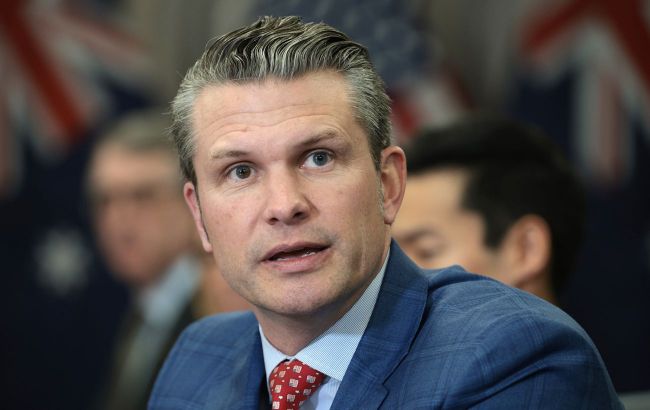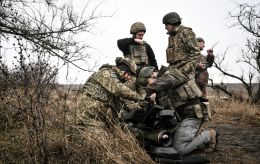Pentagon chief shares classified information in Signal chat with his wife and brother - NYT
 Photo: Pete Hegseth (Getty Images)
Photo: Pete Hegseth (Getty Images)
US Defense Secretary Pete Hegseth on March 15 shared detailed information about upcoming strikes on Yemen in a private Signal group chat. The participants included his wife, brother, and personal lawyer, The New York Times reports.
According to sources, the information Hegseth shared in the Signal chat included the flight schedule of F/A-18 Hornet fighter jets targeting the Houthis in Yemen. These were essentially the same attack plans he shared in another Signal chat earlier that day, in which The Atlantic's editor was mistakenly included.
Hegseth's wife, Jennifer, a former Fox News producer, is not an employee of the Department of Defense, but she traveled abroad with him and has faced criticism for accompanying him to sensitive meetings with foreign leaders.
Hegseth's brother Phil and Tim Parlatore, who continues to serve as his personal lawyer, work at the Pentagon, but it remains unclear why they would need to know about the upcoming military strikes against the Houthis in Yemen.
Signal chats
Unlike the chat mistakenly joined by The Atlantic journalist, this chat was created by Hegseth himself. It included his wife and about a dozen other people from his personal and professional circle back in January, before he was confirmed as Secretary of Defense. It was named Defense Team Huddle. The Secretary used his personal phone rather than a government device to access the Signal chat.
The chat revealed by The Atlantic in March had been created by President Donald Trump's National Security Advisor Mike Waltz to allow top national security officials to coordinate their actions.
Waltz took responsibility for unintentionally adding Jeffrey Goldberg, The Atlantic's editor, to the chat. He named it "small group Houthi PC" to justify the presence of administration "core committee" members gathering to discuss the most sensitive and critical national security matters.
Hegseth shared information about the Yemen strikes in the Defense Team Huddle chat around the same time he was posting the same details in another Signal group that included senior US officials and The Atlantic, according to people familiar with Hegseth’s chat.
Two of Hegseth’s senior advisors, Dan Caldwell and Darin Selnick, also participated in the chat. Last week, they were accused of leaking unauthorized information and were fired.
After The Atlantic revealed that Hegseth had used Waltz's Signal group to transmit strike details in real time, the Trump administration stated that he had not shared "military plans" or any classified information - a claim that national security experts met with deep skepticism.
Although the Signal chat created by Waltz for senior officials faced criticism for exchanging details of a military operation in an encrypted but non-classified app, the participants - with the exception of Goldberg from The Atlantic - were high-ranking government officials with reason to monitor the course of the strike.
However, some participants in the group chat created by Hegseth were not officials who clearly needed real-time information about the operation's details.
Scandal at Pentagon
In addition to the controversy surrounding the Signal chat, Hegseth's office was rocked by the sudden dismissals of Caldwell, Selnick, and Colin Carroll - all top advisors to the defense secretary. Last week, they were escorted from the Pentagon following allegations of leaking confidential information.
Following The Atlantic's publication of the first Signal chat report, Hegseth and other senior administration officials repeatedly denied that any participants had exchanged classified information.
"Nobody was texting war plans, and that's all I have to say about that," Hegseth told reporters. At a Senate hearing, Director of National Intelligence Tulsi Gabbard echoed Hegseth's claim that no classified information was transmitted.
However, other former senior defense officials stated that texts describing launch times and the types of aircraft used ahead of a strike are classified information - and that leaking such details to an enemy could endanger the lives of pilots.
On March 15, Trump advisor Mike Waltz added The Atlantic's editor to a Signal chat where strikes against the Houthis in Yemen were being discussed. However, at the end of March, President Donald Trump said he had no plans to fire anyone over the explosive scandal.

